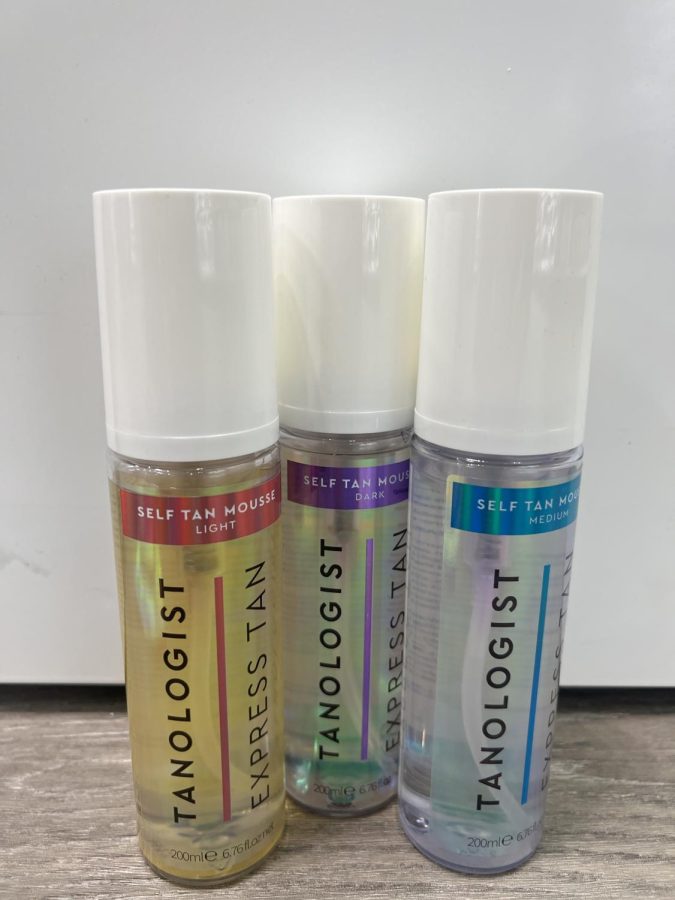Tan Obsessed
March 30, 2023
As the weather turns colder, memories of the joys of summer begin to fade. Looking in the mirror, people also discover something else has waned as well. Their tan.
In order to regain that healthy glow, some people turn to self-tanning products. However, some of these products have been proven to be harmful causing skin cancer and bad reactions such as rashes.
According to a survey of 100 North students, 48 percent use self-tanning products.
Most teens want to believe that indoor tanning is a good way to maintain that tanned glow. Self-tanning can make people feel more confident about themselves.
“I missed how I looked during the summer while being tanned,” sophomore Ava Gorny said. “When I do self tan, it makes me feel more confident, look skinnier in the waist and my teeth look whiter.”
Some miss their summer glow and feel a piece of their confidence fades with their beautiful tan.
“ When I do self tanner, it makes me feel a lot more confident,” sophomore Paige Davis said.
Though often considered a safer alternative to laying out in the sun, these products’ chemical make up can actually be damaging to the skin.
“I still self tan because I love how it looks and I like being tan and I don’t like getting a natural tan from the sun,” Gorny said.
Dihydroxyacetone, also known as DHA, is a major chemical component in self-tanning products.
According to chemistry teacher Joshua Hardie,“Dihydroxyacetone reacts with dead skin cells on the surface of the skin and gives it that tanning glow.”
Furthermore, virtually all self-tanners contain masking fragrances, and fragrance is the number one cause of skin reactions.
A common misconception is that self-tanners are completely safe because, unlike outdoor tanning, a person who uses tanning products is not exposed to ultraviolet radiation, a leading cause of skin cancer.
“In my personal opinion, I do not think self tanning can affect how fast you can age,” sophomore Lauren Dwyer said. “There is no UV light, where in real tanning, you are more likely to age faster and get wrinkles.”
Self tanning does more than just add a darker tint to a person’s skin. Research shows that some people can get facial acne.
“Some facial acne had occurred around my cheeks the first week,” Gorny said.
Often, teenagers want to keep self-tanning because they don’t want the judgment of others, and females, for the most part, want to feel confident and comfortable in their own skin.
“It makes me feel more comfortable, and I want to put myself out there more,” Davis said.
Self tanning has its positives and negatives, but at the end of the day it comes down to the individual’s choice.
“In my opinion, self-tanning is just too damaging to a person’s skin in the long run,” Dwyer said.







